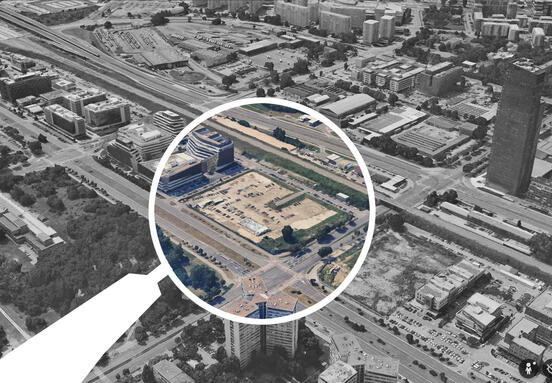In order to place their products easily and to survive the market match, it is necessary small farms to merge to agricultural cooperatives. However, unlike Italy, the Netherlands, Denmark, Norway, France, Slovenia, where farmers cannot imagine their business without cooperatives, in Serbia this kind of merging of farmers has been poorly developing in the past twenty years.
Closing of cooperatives, farms and villages
Although there are significant indicators of cooperatives development, Miladin Sevarlic, professor of the Faculty of Agriculture in Belgrade and member of the working group for drafting the Law on Cooperatives says, it is evident that the number of 1200 in Serbia shows the decay of the model in the years of transition.
- Due to implementation of the Law on bankruptcy from 2009, whose certain provisions were proclaimed to be unconstitutional by the Constitutional Court in July 2012, agricultural cooperatives in Serbia have experienced a kind of euthanasia by liquidation of 736 cooperatives, which is 38% of their total number in less than three years. In Sumadija Pomoravlje, Kolubara, Macva and Zajecar districts, more than half was liquidated while in Jablanica, Pcinj, Bor, Nis, Pirot, Toplica about two-thirds of the total number of cooperatives - Professor Sevarlic said for eKapija.
In the areas where cooperatives vanished, farmers are at the mercy of middlemen or private entrepreneurs, and whole regions were deprived of cooperatives as the most acceptable model of sustainable village which have slowly been dying out.
By the last decade of the 20th century, cooperatives were the pillar of domestic agriculture. As the reason for their downfall as of the early nineties, our source mentions the lack of implementation of international cooperative principles, irregular implementation of cooperative audit, as well as the fact that directors and employees dominate the decision-making of business cooperatives.
A certain part of the property has "lost its track" or it has illegally been transferred from cooperative to social and then to private property in the post-socialist transition period.
- Cooperative staff has had much of the responsibility. They failed to protect cooperative property as their own as well as cooperative leaders whose actions destroyed most of the cooperatives. Certainly, the state has its portion of responsibility because in recent decades it was bringing legislation that categorized cooperative property as social, rather than cooperative, which is a legal precedent in the world – Sevarlic points out.
The Law on Cooperatives
The new Law on Cooperatives, which will be before the Serbian parliament by the end of May, should solve land ownership issue.
Out of the total of 105 779 ha of agricultural land in Serbia, the highest percentage is state-owned (57,459 ha or 54.3%), 30.100 ha is in public ownership i.e. 28.5%, while the cooperative land covers 18,220 ha, or 17.2% .
The new law will finally enable the property proved to be acquired by cooperative work to be registered as - property of the cooperative.
- The new law will also enable transfer of property from social ("everyone’s and no one’s") to cooperative property, but only after five years, a period in which the state or other interested parties would be able to prove the right to the property and to exempt it from cooperatives Sevarlic said.
However, according to our source, neither in the preparation of the draft of the Law on cooperatives there was no political will to involve cooperative sector in the restitution process, just as the state did it with nationalized property of churches and individuals.
- I estimate that about 401 109 ha of agricultural land from cooperatives disappeared, which, according to the price that the government contracted in the sale of land to Al Dahra, is worth over $ 4.8 billion. In the period from the beginning of the transition, 48,106 ha, or nearly a third of the former cooperative land has disappeared from the cooperative sector, which today would be worth approximately EUR 600 million.
Sasa Radivojevic, director of the Cooperative Simanovci, also thinks that the new law will at least partially solve problem of the cooperative property but he also adds that they face a number of problems.
- Old cooperatives are struggling to make ends meet, they do not get grants or any other support from the state, they have difficulties in obtaining loans because they cannot pledge the property registered as social, they have problems with contractors who do not return their debts. Moreover, cooperatives have competitors purchasing agricultural products for cash, competition which charges agricultural mechanization costs in cash and without taxes, and thus it is more favorable than cooperative, and this kind of competition is neither controlled nor punished – Radivojevic said.
Cooperative Simanovci was founded in 1905 and today it has 48 members, some 200 farmers and 16 employees, and its director thinks that cooperatives that turned their back to a village and its members are failing.
- During the previous twenty years, employees of the cooperatives were acting as self-managers, in the old cooperatives in the ‘90s, instead of the workers' council, board of directors were set up and it did not make any substantial changes and still the same people managed cooperatives. Consciousness of its members and employees has changed in cooperatives which experienced generation shift. Therefore, only those had a chance to survive to the present day – Radivojevic claims, adding that the status of cooperatives is difficult and uncertain since, after all, it is "a plant under the open sky ".
Ekapija






